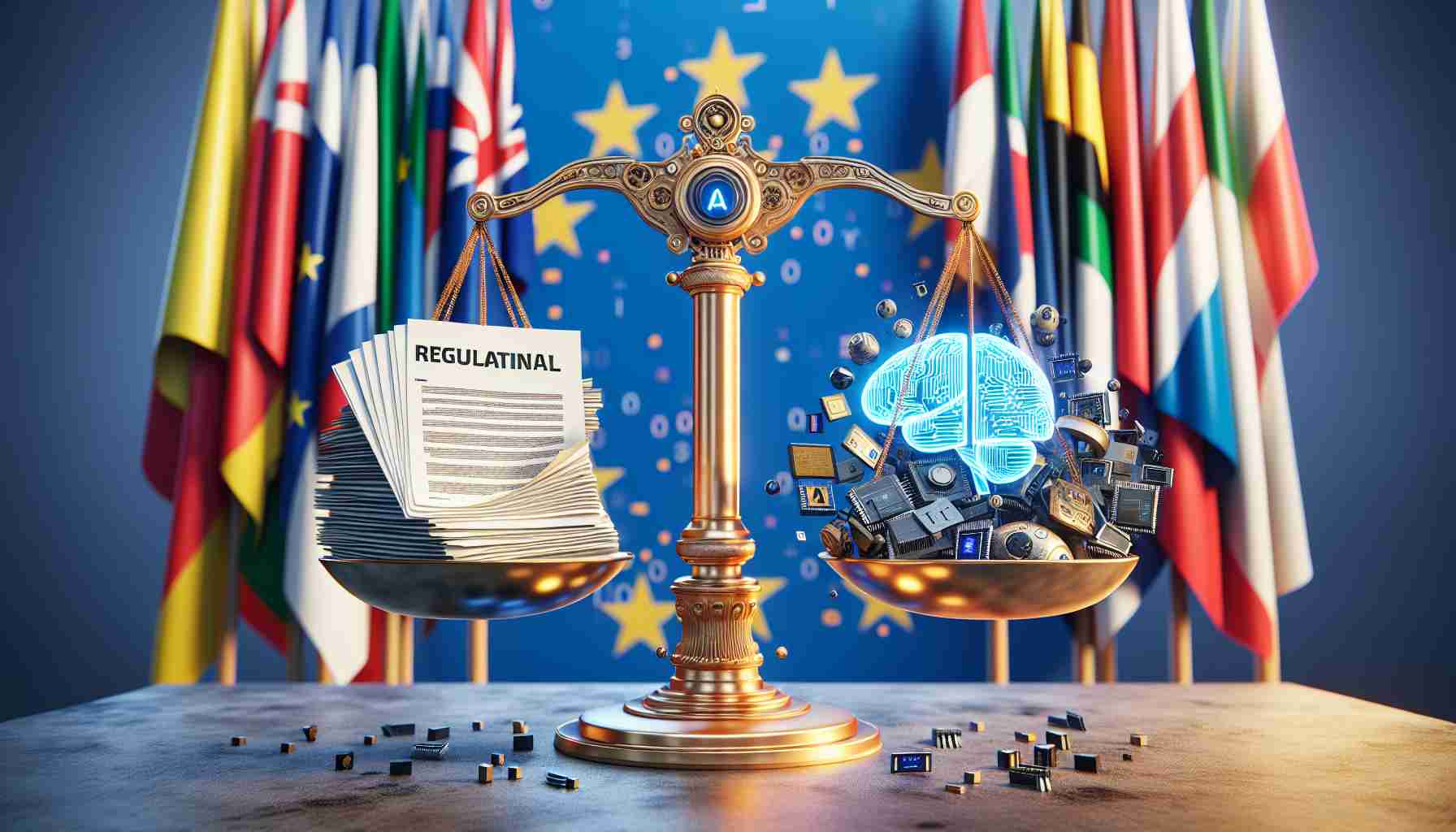The European Union (EU) has taken a groundbreaking step in the field of Artificial Intelligence (AI) by introducing the first-ever legislation aimed at governing AI technologies. The recently approved Artificial Intelligence Act presents a risk-based strategy that obliges companies to adhere to legal requirements before introducing AI products to the market. This move is considered a significant advancement in addressing the potential risks associated with AI, although some experts believe that certain aspects of the regulation are lacking.
Critics have voiced concerns about the perceived absence of regulations concerning the most powerful AI models, known as foundation models, which possess the capability to inflict substantial harm. Foundation models undergo extensive data training and can be utilized for a multitude of purposes. Max von Thun, the European director of the Open Markets Institute, contends that the new legislation inadequately deals with the influence and dominance held by major tech corporations within the AI landscape. He argues that the regulation falls short in curbing the monopolistic authority these companies wield over personal lives, economies, and democracies.
Despite these apprehensions, many new start-ups and small-scale enterprises operating in the realm of AI have welcomed the lucidity brought forth by the fresh regulation. They perceive it as a positive stride towards the responsible utilization of AI, nurturing trust among users, and guaranteeing the safety of AI systems. Alex Combessie, the CEO of the French open-source AI company Giskard, deems the EU AI Act as a pivotal moment that charts the course for a future where AI is harnessed conscientiously.
The legislation categorizes AI products based on the computational potency utilized in their training, with stricter controls applied to those surpassing a specific threshold. Despite this classification framework being viewed as a starting point, some experts argue that it should encompass the ramifications of AI systems on fundamental rights, especially in the realm of information. They advocate for AI to be treated as a communal asset, urging the European Commission to refine the classification structure accordingly.
Maintaining a delicate equilibrium between the interests of private enterprises and the necessity for regulation stands as another challenge posed by the EU AI Act. Julie Linn Teigland, the Managing Partner at EY Europe, Middle East, India, and Africa, accentuates the significance of harnessing the vitality of the private sector to propel AI innovation and heighten Europe’s competitiveness. Nonetheless, she underscores the imperative for businesses to gear up for the new legislation and apprehend their legal obligations.
Although the enactment of the EU AI Act marks a notable milestone, attention is now directed towards its practical implementation and enforcement. Ancillary regulations like the AI Liability Directive and the EU AI Office will play pivotal roles in fortifying the execution of the new rules. The AI Liability Directive aims to aid in addressing liability claims pertaining to AI-driven products and services, while the EU AI Office is geared towards streamlining rule enforcement.
As AI continues to progress and influence various facets of our lives, achieving an appropriate equilibrium between regulation and innovation assumes critical importance. The EU’s recent legislation mirrors a significant leap towards mitigating the risks associated with AI. Nonetheless, ongoing deliberations and modifications may be indispensable to ensure that the regulations align with technological advancements and evolving societal requisites.
Useful articles for further reading:
UKK
The source of the article is from the blog elektrischnederland.nl
